Houthis Say Yemen Peace Talks Made Progress, To Continue
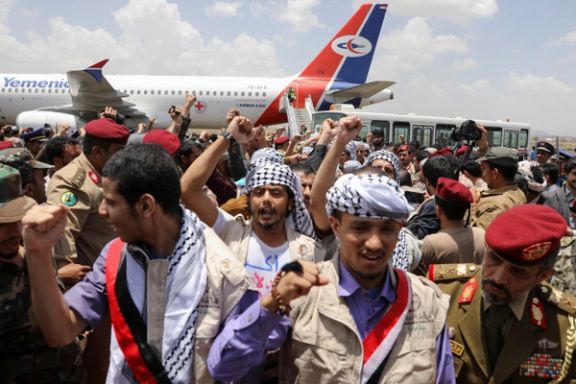
The top negotiator of Yemen's Houthi movement said peace talks with Saudi Arabia had made progress and will continue to iron out remaining differences.

The top negotiator of Yemen's Houthi movement said peace talks with Saudi Arabia had made progress and will continue to iron out remaining differences.
In a significant confidence-building measure, the conclusion of talks in the Yemeni capital Sanaa was followed by an announcement on Friday from the International Committee of the Red Cross that the warring parties had begun an exchange of nearly 900 detainees.
Saudi Arabia, which leads a coalition that has been battling the Iranian-backed Houthis since 2015, is seeking a permanent ceasefire deal to end its military involvement in a war that has killed tens of thousands of people and left millions hungry.
Houthi chief negotiator Mohammed Abdulsalam said on Friday the negotiations with envoys from Saudi Arabia and Oman, which is facilitating the talks, had been "serious and positive".
"There was advancement on some issues with the hope of continuing studying outstanding issues at another time," he said in a Twitter post, without elaborating.
The visit by the Saudi delegation, which departed Sanaa on Thursday according to two Yemeni sources, signaled movement to build on an expired UN-brokered truce and followed last month's deal between Saudi Arabia and Iran to restore ties.
Sources have told Reuters that the Saudi-Houthi talks were focused on a ceasefire, full reopening of Houthi-controlled ports and Sanaa airport, payment of public sector wages, rebuilding efforts, and withdrawal of foreign forces from Yemen.
The conflict is widely seen as one of several proxy wars between Saudi Arabia and Iran, the region's Sunni Muslim and Shiite powers.
They have agreed to restore diplomatic ties severed in 2016 as Riyadh moves to manage regional tensions and to focus on economic priorities.
Reporting by Reuters

Israel will not allow Iran to obtain nuclear weapons, with or without help from others, Israeli Prime Minister Benjamin Netanyahu told local media on Thursday.
As Iran and all its allies and proxies in the region marked the Quds Day, a designated day to support Palestinians and condemn Israel, Netanyahu told Israel’s channel 14 in an interview that the issue of Iran’s nuclear weapons depends on him and he will not allow it.
His statement about preventing Iran’s nuclearization “With or Without help from others”, presumably referring to a possible role by the United States, echoed a statement by former Israeli National Security Advisor Yaakov Amidror, who said on Thursday, “We need to prepare for war. It’s possible that we will reach a point where we have to attack Iran even without American assistance.”
Iranian media widely reported Amidror’s statement on Friday, as the Islamic Republic’s various government institutions pushed to get a big turnout during the Quds Day, anti-Israeli marches.
Fars news agency affiliated with the Revolutionary Guard recycled past statements by the Supreme Leader Ali Khamenei, saying that when Iranian officials call for the “eradication of Israel” they do not mean the Jewish people, but the current state of Israel.
Eradicating Israel, Khamenei was quoted as saying means “The Palestinian people, who are the real owners of that land, whether Muslim, Christian or Jewish electing their real government…and expelling thugs such as Netanyahu” who are foreigners.
Khamenei, his loyalists and government-controlled media in Iran have been claiming in recent weeks that end of Israel is near, after Israeli protests against Netanyahu and Palestinian terror and rocket attacks.
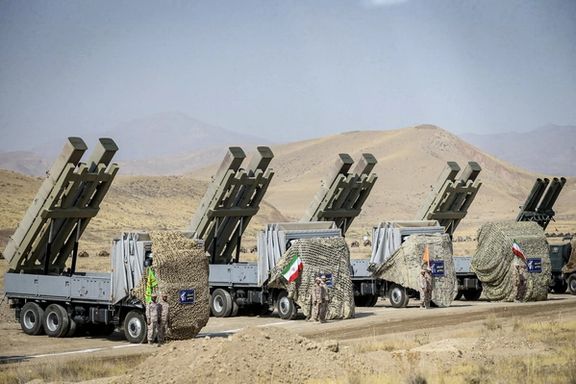
Iran’s Armed Forces issued a statement on Thursday claiming that the countdown to the collapse of Israel has begun.
It is the latest in a stream of anti-Israel propaganda released by the regime which is at fever pitch in rallying the Muslim world against its archenemy.
“Experience has shown that any compromise plan, including the normalization of ties between the Zionist regime and some Islamic countries, has failed, and the Islamic resistance is the only solution to the Palestinian issue,” reads the statement.
It was likely referring to the internal political division in Israel, with protests against the government's legislative reforms. Iranian proxies in Gaza, Lebanon and Syria have all recently attacked Israel with rockets as tensions simmer during the holy month of Ramadan.
A few years ago, Supreme Leader Ali Khamenei said Israel must be destroyed in 25 years and the government even set up a countdown clock in Tehran. Many Iranians mock the anti-Israel rhetoric and the ticking clock, but the regime is adamant in repeating its threat.
The latest statement was released on the eve of Quds Day, an annual event showing solidarity with Palestine and against the state of Israel. It was proclaimed by the founder of the Islamic Republic Ruhollah Khomeini in 1979.
In Iran, Quds Day also features demonstrations against other countries that the regime deems as enemies, including the United States, the UK and Saudi Arabia.
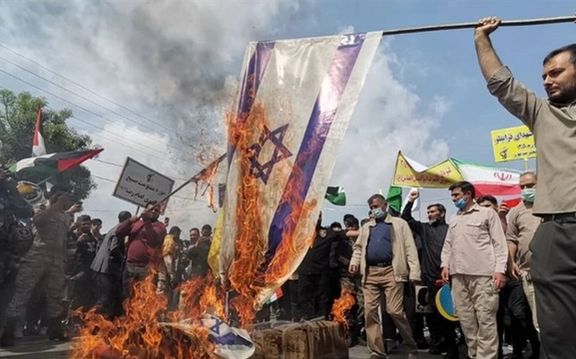
The Islamic Republic is going all out to ensure mass attendance at anti-Israel rallies for Quds Day in another attempt to undermine its archenemy.
Iranian state media is sounding the rallying cry for participation in the annual pro-Palestine event, held on the last Friday of the Muslim fasting month of Ramadan, which is on April 14 this year.
In addition to several organizations affiliated with the Revolutionary Guards, the country's traditional army, the Islamic Republic’s Assembly of Experts for Leadership, and government ministries as well as several Iranian Maraji -- supreme legal authorities for Twelver Shia Muslims – issued statements in the past few days, calling for participation.
Such state-sponsored events are usually shunned by the general public and the regime ends up transporting paramilitary Basij forces and its supporters from small towns to provincial capitals to form demonstrations with large crowds for the façade of mass support.
A large number of students and conscripts who are serving their mandatory military service as well as workers of government organizations are either forced or cajoled into partaking in the event in exchange for food, days off, and financial bonuses.
According to a letter obtained by "IranWire” website, the Physical Education Organization of Tehran province, has ordered directors of sports centers of the province to make sure national teams’ athletes participate in the "Quds Day march".
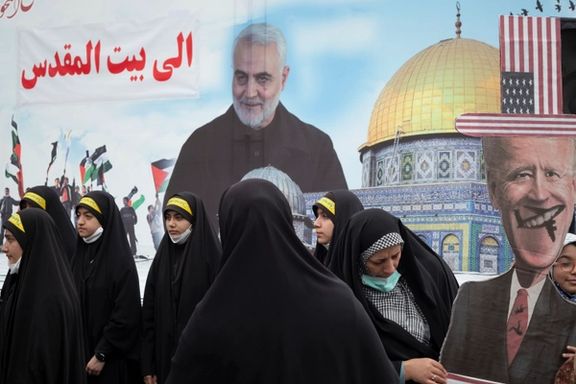
In the letter, Karamali Iraji, a deputy at the Ministry of Sport and Youth, also talked about a “directive by the Tehran’s governor’s office” about forcing the national teams' athletes to show up at 10:30 on Friday morning at Tehran’s Vali-Asr square, one of the main routes of the rallies.
The routes for the rallies are pre-determined by the regime and different recreational booths and gift shops are usually set up along the way. The regime also installed a huge mural at Enghelab (Revolution) square, which leads to Tehran’s main square Azadi. The colossal banner reads, “We will be in Quds in less than 17 years,” referring to remarks by Supreme Leader Ali Khamenei who keeps saying that the Israeli government will fall by then and Muslims will conquer the region.
Iran’s Parliament Speaker Mohammad Bagher Ghalibaf has been announced as the official who will deliver the main speech on the day. The content of the speech is already obvious for Iranians who have been listening to the same statements for at least four decades. It will start with the promulgation of the Palestinian cause and their right to the “occupied territories” and will go on with highlighting “the atrocities by the Zionist regime” and will end with the latest political upheavals inside Israel. Reiterating Khamenei’s views, the speaker will probably predict that Israel will fall within a certain number of years.
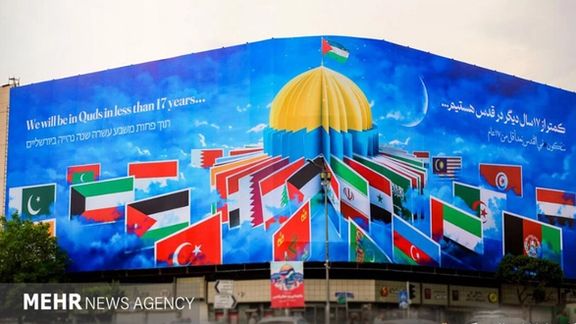
In a post on his Twitter account on Thursday, Iran’s Foreign Ministry spokesman Nasser Kanani posted pictures of a recent meeting between top leaders of the Palestinian and Lebanese resistance movements, Hamas and Hezbollah, both proscribed terror groups in the West. He said: “The balance of power has long shifted – to the detriment of the fake Israeli regime and to the benefit of the Palestinian nation.”
The event, which takes its name from the Arabic-language name for Jerusalem, is held to express support for Palestinians and oppose Israel and Zionism. Directed against Israel’s existence, Al-Quds Day was proclaimed by the founder of the Islamic Republic Ruhollah Khomeini on 7 August 1979. He called on Muslims worldwide to unite in solidarity against Israel and in support of the Palestinians, saying the "liberation" of Jerusalem was a religious duty to all Muslims.”
In Iran, Quds Day also features demonstrations against other countries that the regime deems as enemies, including the United States, the UK and Saudi Arabia. It has now become an international phenomena to perpetuate antisemitic and anti-Israel propaganda among the Muslim world under the auspices of a collective cause propagated by Iran's dictator.
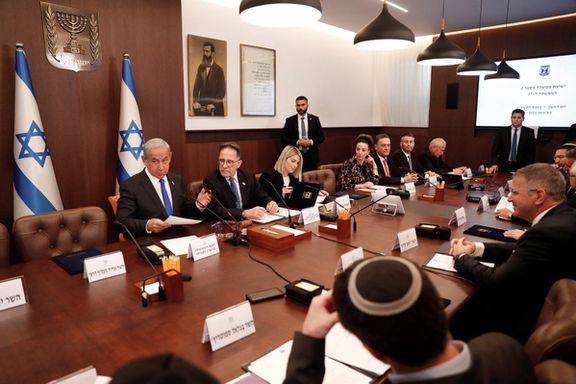
Senior Israeli intelligence analysts have spoken about the in-depth research its dedicated units are doing in assessing the threat from Iran.
In an article in Israeli newspaper Maariv, four officials revealed the country’s focus on Iran’s internal divide, its economic woes, its nuclear program and its foreign policy implications.
The four experts from the Iran branch of the AMAN unit, the Israel Defence Forces’ intelligence division, spoke about the turning point of 2015’s nuclear deal, which emboldened the regime to expand its influence across the region, not least, in Syria.
However, by 2018, under the Trump administration, everything changed when a raft of sanctions came down hard on the regime, with support and pressure from Israeli Prime Minister Benjamin Netanyahu, and Iran was made an international pariah state. Rather than stem the tide, this only hastened the race to arm, said the intel chiefs.
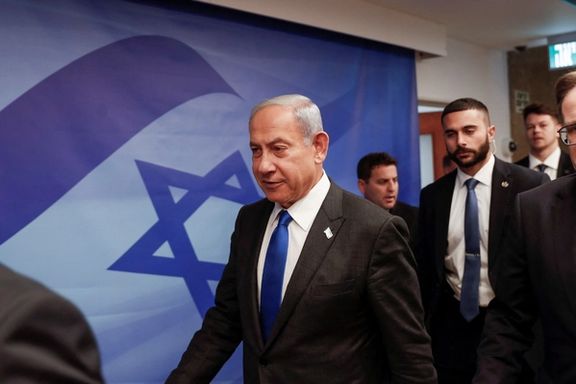
Aligning its proxy militia Hezbollah with President Assad's fight in Syria against opposition elements, an alliance to which the Russians also joined, Iran’s net has only grown wider. It has led to a tit for tat shadow war in Syria which has become a battleground between Iran and Israel, and even drawn in US forces.
This becomes more complex as was seen last week, when threats grow ever closer to Israel’s borders, with rockets raining down on Israel from Gaza, all with the guiding hand of Tehran.
But much more than only the nuclear threat, the Iran branch of the intelligence unit analyzes Iran’s internal affairs, from the protests to its economic crisis, all of which play a role in better understanding a country whose regime pledges to destroy the Jewish state but is more concerned with internal threats.
The unit claims that roughly 80 percent of the Iranian public does not support the regime, a figure which few could question in the light of mass protests since September, part of its bi-annual assessments on the domestic situation.
The internal strife facing Iran is a huge focus of the Iran unit, reaffirming the belief that the regime’s power is waning. "This protest expresses deep trends that exist in the Iranian public of moving away from the regime's values and a dramatic decrease in trust in it,” one officer said.
However while they say it is the most significant event in recent history, set to influence decision making in the years to come, the protest still lacks leadership and an alternative political system to the regime.
"It is impossible to separate the Iranian nuclear issue from the internal protest in the country", explained one of the officers. "There are very limited forums of people who make decisions in Iran, and they do so on many issues. When an Iranian decision-maker has to decide on a certain issue, he also has to think about many other things that are not necessarily related to each other."
Its research has found several elements that influence the decision-making of the leadership of the Revolutionary Guards. In order or priority, the first is the internal situation in the country and regime’s stability, then there is the economic situation, security, industrial strength and finally, its place on the world stage.
There is no doubt that its nuclear program has helped Iran leverage its international might, the focus of the foreign branch of the Iran unit, concentrated on the leverage Iran utilizes from its nuclear power.
Recent diplomatic rapprochement with Saudi Arabia and the United Arab Emirates only compound the fear Iran is sending rippling through the region. This has in turn, alarmed the security establishment in Israel, admits the intelligence team.
“Iran's relations with significant countries have strengthened and its nuclear program is at its most advanced point ever. It manages to leverage it in the diplomatic arena as well," senior security officials explained with concern.
Iran knows the US has no plans to launch an attack of any kind and the diplomatic crisis under the Biden administration only plays into the Iranians’ hands, yet further emboldening the regime. In its softly-softly approach, hoping to revive the JCPOA nuclear deal, Biden has only given Iran the green light.
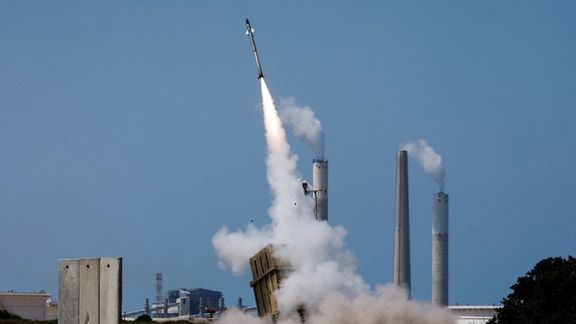
As is clear, Iran is nearing the upper end of enrichment to 90-percent and AMAN’s experts say even a return to the nuclear deal cannot change this.
"In our opinion, Iran does not seek to develop nuclear weapons in the immediate term," said a senior officer. "And even if they reach 90% enrichment now, then even once they decide to develop a bomb and assuming no one prevents them from doing so, it will take them between two and three years." Even from reaching fissile material, there is some way to go to turning that into an airworthy missile.
"Iran understands that the development of nuclear weapons is a very dangerous issue, and no one in Tehran wants to take a step that they will regret,” explained one official.
“We currently define Iran as a nuclear threshold country. They mainly conduct a policy of trial and error during their enrichment, every time we are taking another step in the plan and are waiting to see how the world reacts. Diplomatic ties with Europe, for example, are very important for the Iranians." Even Iran’s new bosom buddies Russia and China have no interest in Iran having nuclear weapons in their hands, AMAN’s team admits.
While much recent focus has looked at the Iranian presence in Syria, it does not pose as much of a threat as that of its role in Iraq, says AMAN’s analysts. "Iran wants to keep Iraq as close as possible," explains one Major in the team. "The Iranians are successful in the diplomatic arena vis-à-vis Iraq, they have a pro-Iranian government there and the goal in Tehran is to perpetuate the situation as it is. Iran still has dozens of affiliates in Iraq, which include thousands of people. This is a force that Iran has actively supported for several years and invests hundreds of millions of dollars in it annually."
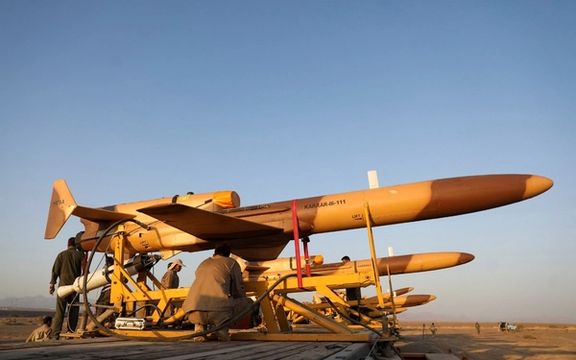
From an intelligence point of view, the immediate danger from Iraq is the hundreds of armed UAVs that are already stationed there and could be sent to Israel in the event of a conflict, made all the more difficult for Israel as its hands are tied by complicated military limitations, mainly due to the caution being exerted in the area by the US.
Iran would relish the idea of a weakening relationship between Israel and the US, seen recently since Netanyahu’s proposed judicial reforms and proposals to bring in more orthodox religious laws across the country. Protests have rocked Israel since the right-wing coalition took hold in January and Iran loves to see this as the sign of the state’s imminent collapse, rather than its standing firm in its democratic values.
Israel makes no secret of the fact Iran is the Jewish state’s biggest threat, an honor once held by its proxy, Hamas, which controls the Gaza Strip. However, the team in AMAN is aware that before Iran, comes the threat much closer to home, Hezbollah, an entity which was born of the desire to exterminate Israel. Neither Israel nor Iran seems keen to take the conflict into the arena, but for Hezbollah, that is another question.
“Today we are preparing much more for a possible attack on Iran, and are making much more offensive and defensive military preparations in the Iranian context,” one official said, but this really is a last resort in a game which could have horrific ripple effects for the whole region.
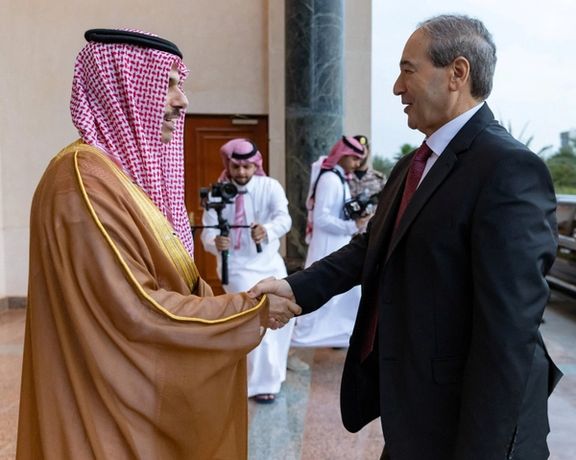
Saudi Arabia and Syria's foreign ministers on Wednesday welcomed a thaw in bilateral ties, weeks after Riyadh reached a deal to resume relations with Iran.
The two sides agreed steps to resume consular services and flights and agreed to cooperate to fight drug trafficking and facilitate Syria's return to the Arab fold.
Syrian Foreign Minister Faisal Mekdad landed in the Saudi Red Sea city of Jeddah on Wednesday in the first visit by a senior Syrian diplomat to the kingdom in more than a decade, a major sign that Syria's regional isolation is nearing an end.
Saudi Arabia cut ties with Damascus amid Syrian President Bashar Al-Assad's brutal crackdown on peaceful protests in 2011 and backed rebel groups that fought to remove Assad from power. Syria was also suspended from the Arab League.
The resumption of Saudi-Syrian ties marks the most significant development in moves by Arab states to normalize links with Assad.
Assad, with the help of his main allies Iran and Russia, regained control over much of Syria, and Saudi Arabia has said isolating him was not working.
In a joint statement at the end of Wednesday's visit, both sides agreed on the need for the Syrian state to assert its control over all its territories "and end the presence of armed militias".
Mekdad's trip to Jeddah came two days before Saudi Arabia hosts another meeting of regional foreign ministers that will discuss Syria's return to the Arab League.
Saudi Arabia plans to invite Assad to the Arab League summit Riyadh is scheduled to host on May 19, a move that would formally end his regional isolation, sources have told Reuters, though it is unclear if there is Arab consensus on the matter.
Reporting by Reuters